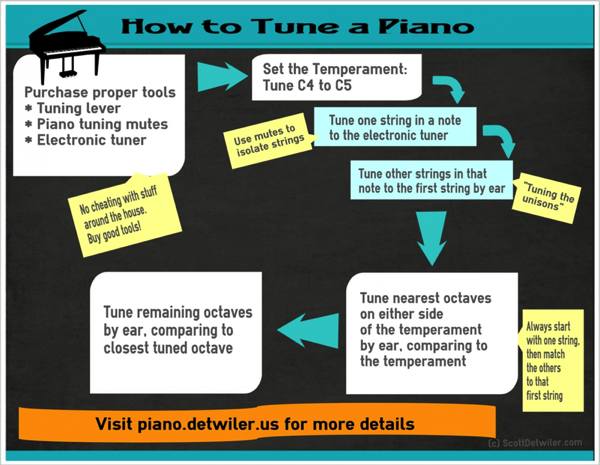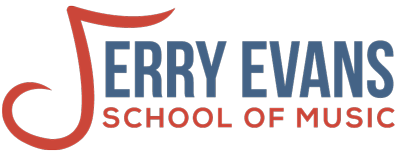You are probably familiar with the sound of an out-of-tune piano unless you’ve only ever used or heard electric pianos. It might remind you of a scary movie, a haunted house, or even an old saloon. For some, it’s a nostalgic sound that reminds you of a piano that your grandparents owned but never used. Trained pianists cringe at the sound. Because of this, they make sure their own pianos are tuned regularly.
It’s recommended that pianos should be tuned about twice a year, depending on weather and age. Some newer pianos and very old pianos should be tuned even more often because the strings are more susceptible to temperature changes. Here is a step by step look at how professionals tune their pianos:
Tools Needed:
The three primary tools that piano tuners use are a tuning lever or wrench, an electronic chromatic tuner or a tuning fork, and rubber wedge mutes. You can find tools like these online and in various music shops. Often times, you can actually purchase a piano tuning kit with all of these tools and more.
Step One:
The first thing a piano tuner focuses on is a single key in the middle octave of the piano. They use the tuning lever to make small adjustments while using the chromatic tuner to check for accuracy. The mutes are used for keys that have multiple strings. This way, the piano tuner can focus on one individual string at a time.
Step Two:
After tuning the first string, the piano tuner finishes any other strings for that first note. At this point, piano tuners often go without the chromatic tuner and do the tuning completely by ear. To finish step 2, the piano tuner will finish tuning the notes in this middle octave.
Step Three:
The final step for tuning a piano is to tune all of the octaves. Working without the chromatic tuner, the piano tuner will use his ear, comparing higher and lower octaves to the original notes they tuned in step 1 and step 2.

And that’s it! Now I would not recommend tuning your family’s expensive grand piano if you have no experience; call a professional for that. But if you happen to have an antique piano that never holds it’s tune and you want to learn, then by all means go ahead!
Piano Lessons with Bojan Kolevski
We are blessed to have Bojan as an instructor at the JESM. We invite students from Wheaton, Carol Stream, Glen Ellyn, Lombard, Lisle, West Chicago, Naperville and the other suburbs of DuPage to contact us for their first lesson. Call us today at 630-359-7725 or email us at admin@jeschoolofmusic.com to schedule your first lesson.












